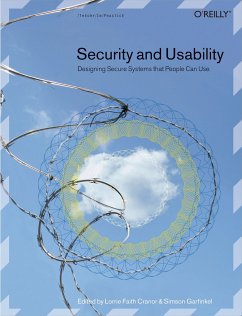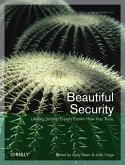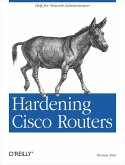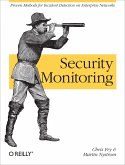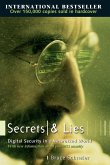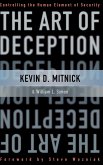There is increasing agreement that we need to design secure computer systems that people can actually use, but less agreement about how to reach this goal. Destined to be the classic reference in this emerging field, Security & Usability collects 34 groundbreaking essays from leading security and human-computer interaction (HCI) researchers on authentication, privacy and anonymity, secure systems, commercialization, and much more. It is expected to start an avalanche of discussion, new ideas, and further advances in this important field.
Human factors and usability issues have traditionally played a limited role in security research and secure systems development. Security experts have largely ignored usability issues--both because they often failed to recognize the importance of human factors and because they lacked the expertise to address them. But there is a growing recognition that today's security problems can be solved only by addressing issues of usability and human factors. Increasingly, well-publicized security breaches are attributed to human errors that might have been prevented through more usable software. Indeed, the world's future cyber-security depends upon the deployment of security technology that can be broadly used by untrained computer users. Still, many people believe there is an inherent tradeoff between computer security and usability. It's true that a computer without passwords is usable, but not very secure. A computer that makes you authenticate every five minutes with a password and a fresh drop of blood might be very secure, but nobody would use it. Clearly, people need computers, and if they can't use one that's secure, they'll use one that isn't. Unfortunately, unsecured systems aren't usable for long, either. They get hacked, compromised, and otherwise rendered useless. There is increasing agreement that we need to design secure systems that people can actually use, but less agreement about how to reach this goal. Security & Usability is the first book-length work describing the current state of the art in this emerging field. Edited by security experts Dr. Lorrie Faith Cranor and Dr. Simson Garfinkel, and authored by cutting-edge security and human-computerinteraction (HCI) researchers world-wide, this volume is expected to become both a classic reference and an inspiration for future research. Security & Usability groups 34 essays into six parts: Realigning Usability and Security---with careful attention to user-centered design principles, security and usability can be synergistic. Authentication Mechanisms-- techniques for identifying and authenticating computer users. Secure Systems--how system software can deliver or destroy a secure user experience. Privacy and Anonymity Systems--methods for allowing people to control the release of personal information. Commercializing Usability: The Vendor Perspective--specific experiences of security and software vendors (e.g.,IBM, Microsoft, Lotus, Firefox, and Zone Labs) in addressing usability. The Classics--groundbreaking papers that sparked the field of security and usability. This book is expected to start an avalanche of discussion, new ideas, and further advances in this important field.
Human factors and usability issues have traditionally played a limited role in security research and secure systems development. Security experts have largely ignored usability issues--both because they often failed to recognize the importance of human factors and because they lacked the expertise to address them. But there is a growing recognition that today's security problems can be solved only by addressing issues of usability and human factors. Increasingly, well-publicized security breaches are attributed to human errors that might have been prevented through more usable software. Indeed, the world's future cyber-security depends upon the deployment of security technology that can be broadly used by untrained computer users. Still, many people believe there is an inherent tradeoff between computer security and usability. It's true that a computer without passwords is usable, but not very secure. A computer that makes you authenticate every five minutes with a password and a fresh drop of blood might be very secure, but nobody would use it. Clearly, people need computers, and if they can't use one that's secure, they'll use one that isn't. Unfortunately, unsecured systems aren't usable for long, either. They get hacked, compromised, and otherwise rendered useless. There is increasing agreement that we need to design secure systems that people can actually use, but less agreement about how to reach this goal. Security & Usability is the first book-length work describing the current state of the art in this emerging field. Edited by security experts Dr. Lorrie Faith Cranor and Dr. Simson Garfinkel, and authored by cutting-edge security and human-computerinteraction (HCI) researchers world-wide, this volume is expected to become both a classic reference and an inspiration for future research. Security & Usability groups 34 essays into six parts: Realigning Usability and Security---with careful attention to user-centered design principles, security and usability can be synergistic. Authentication Mechanisms-- techniques for identifying and authenticating computer users. Secure Systems--how system software can deliver or destroy a secure user experience. Privacy and Anonymity Systems--methods for allowing people to control the release of personal information. Commercializing Usability: The Vendor Perspective--specific experiences of security and software vendors (e.g.,IBM, Microsoft, Lotus, Firefox, and Zone Labs) in addressing usability. The Classics--groundbreaking papers that sparked the field of security and usability. This book is expected to start an avalanche of discussion, new ideas, and further advances in this important field.
"[F]achlich fundiert, leicht verständlich geschrieben und interessant zu lesen. [...] Dank der geschickten Verbindung von theoretischen Grundlagen und praktischen Anwendungen eignet sich das Buch meines Erachtens sowohl für Studierende an Fachhochschulen und Universitäten wie auch für Praktiker." - Dr. Udo Hönig, Europäische Fachhochschule Rhein/Erft, Dezember 2012

